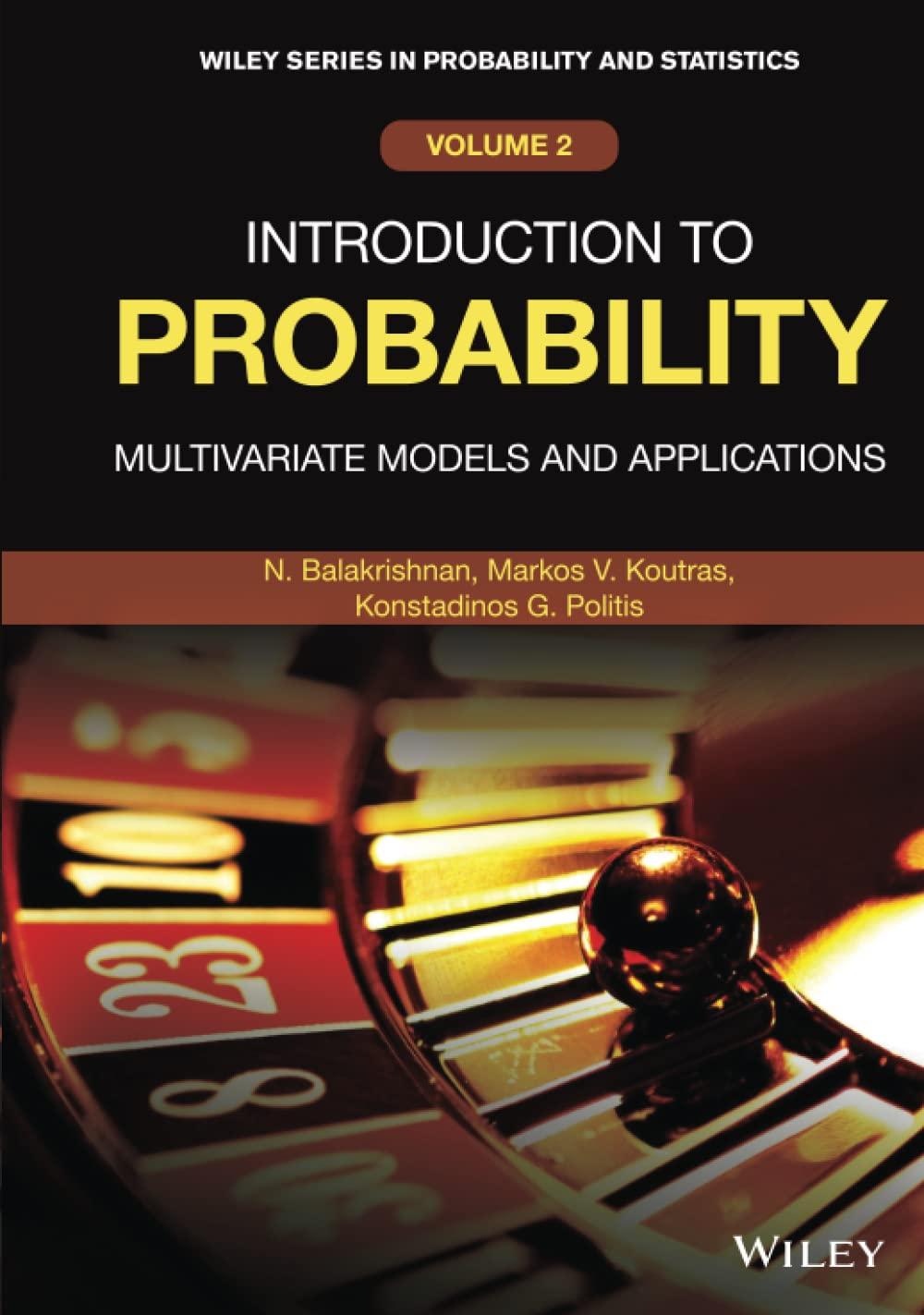A random variable is said to be symmetric around zero if we have P(X t) =
Question:
A random variable is said to be symmetric around zero if we have P(X ≥ t) = P(X ≤ −t)
for any t ∈ ℝ. Prove that, if X is symmetric around zero with a distribution function F, then the following hold:
(i) P(|X| ≤ t) = 2F(t) − 1;
(ii) P(X = t) = F(t) + F(−t) − 1.
If, in addition, the distribution function F is continuous at t = 0, show that F(0) = 0.5.
(Hint: For the last result, use the relations P(X > 0) + P(X ≤ 0) = 1 and P(X ≥
0) = 1 − F(0−) = 1 − F(0).)
Fantastic news! We've Found the answer you've been seeking!
Step by Step Answer:
Related Book For 

Introduction To Probability Volume 2
ISBN: 9781118123331
1st Edition
Authors: Narayanaswamy Balakrishnan, Markos V. Koutras, Konstadinos G. Politis
Question Posted:






